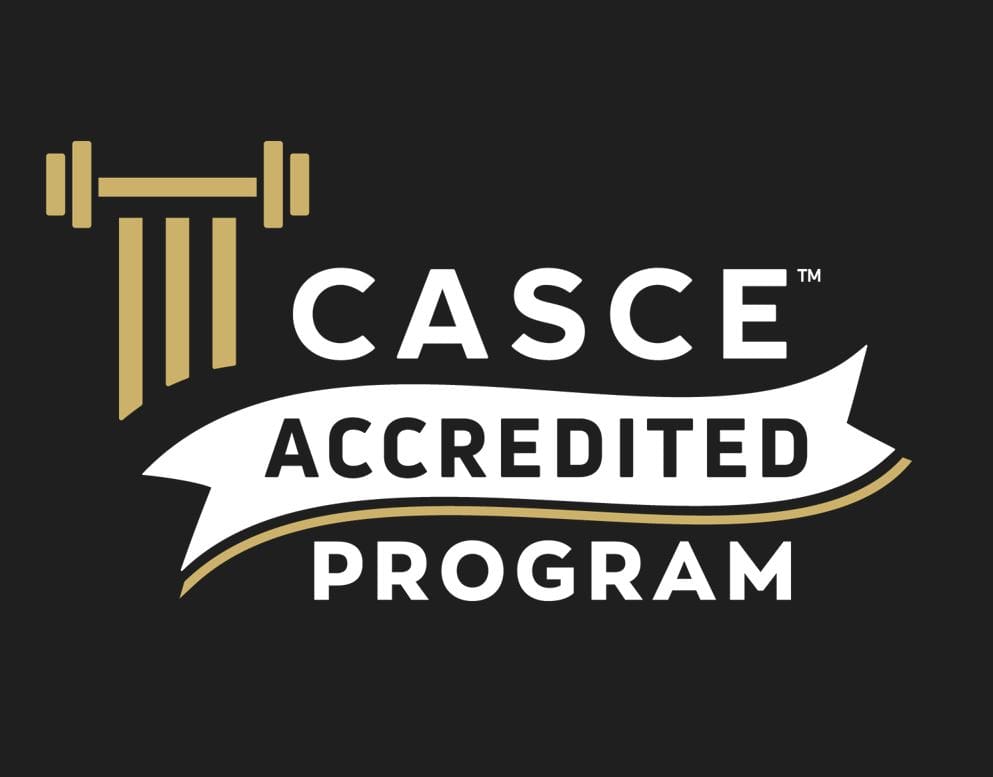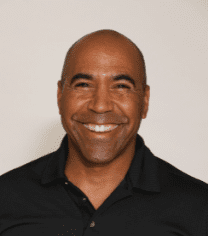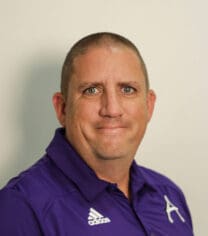
Be the Mind Beyond the Muscle
How does your body know which muscles to contract for a specific task? What is the best approach to healthy weight loss? Which dietary supplements really enhance performance? How does chronic stress affect physical and mental health?
At Avila University we do more than ask questions – We discover answers
Kinesiology not only seeks to enhance athletic ability; it strives to improve quality of life. Optimum health is the ultimate finish line, and Kinesiology is advancing ways for everyone to cross it. Learn More…

Contact
Gerald Larson, Ph.D., ACSM-CEP, NSCA-CSCS*D, Associate Professor and Program Director of Kinesiology
P: 816-501-3714 / E: gerald.larson
Bachelor of Science in Kinesiology
Kinesiology is the study of human movement and the body’s response to exercise. It is an examination of systems, factors, and principles involved in human development within the context of society. Relevant fields in the study of kinesiology include anatomy, physiology, biomechanics, motor learning and control, and sports psychology and sociology.
Building on appropriate prerequisites from the traditional disciplines in the humanities and the physical, biological, and social sciences, our curriculum blends a conventional biophysical approach with an innovative contemporary mindset that embraces a “holistic” approach to optimizing health, fitness, and athletic performance. A Kinesiology degree prepares students for careers in college or university athletic programs, professional sports arenas, the private fitness industry, human service organizations, allied health careers in hospital and medical centers, corporate wellness venues, cardiopulmonary rehabilitation settings, and education. The major also prepares students to apply to professional programs including medicine, physical therapy, physician assistant, sport psychology, athletic training, exercise physiology, biomechanics, or health education.
course Requirements
SKILLS LEVEL REQUIREMENTS (6 + FYS credits)
- CO 110 Fund of Communication (3)
- EN 111/112 Composition I or II (3)
- FS 101 First-Year Seminar (1)
LIBERAL ARTS LEVEL REQUIREMENTS (25 credits)
- Arts (3)
- History (3)
- Literature (3)
- Mathematics: MA 155 Elem. Probability & Stats OR SO 230 Social Statistics (3)
- Natural Science: BI 111 General Biology: Cells & Genes OR BI 112 General Biology: Ecology & Evolution (4)
- Philosophy: PL 255: Ethics (3)
- Religious Studies (3)
- Social Science: PY 101 General Psychology (3)
CORE Components Designation Requirements (6-12 credits)
- Interdisciplinary Studies (IS) (3-6 credits)
- Global Studies or Community Engagement (3-6 credits)
Liberal Arts and Social Science Courses (3 credits)
- EN 112: Composition II or advanced writing course
Math and Science Courses (11-12 credits)
- CH 131: Principles of Chemistry OR CH 135: General Chemistry I
- MA 120: College Algebra or above
- PH 117: Physics Concepts OR PH 231: General Physics I
NOTE: Pre-athletic training and physical therapy students should enroll in CH 135 and PH 231
Kinesiology Courses (27 credits)
- KN 101: Introduction to Kinesiology (3)
- KN 211: Applied Sports Medicine (3)
- KN 316: Anatomical Kinesiology (3)
- KN 319: Biomechanics (3)
- KN 376: Motor Behavior (3)
- KN 381: Exercise Physiology (3)
- KN 393: Sport Psychology (3)
- KN 420: Stress Physiology (3)
- KN Capstone (i.e., KN 475 or KN 482 or KN 499)
*Technology requirements are met by the capstone courses (KN 475, KN 482, KN 499)
- KN 236: Exercise Testing and Technique (3)
- KN 271: Exercise and Nutrition (3)
- KN 314: Exercise Programming (3)
- KN Electives (6)
- KN 236: Exercise Testing and Technique (3)
- KN 271: Exercise and Nutrition (3)
- KN 314: Exercise Programming (3)
- KN 455: Principles of Strength and Conditioning (3)
- KN 472: Strength and Conditioning Field Experience (3)
- BI 220: Human Anatomy and Physiology (8)
- HE 124: Medical Terminology (2)
- PY 208: Lifespan Development (3)
- PY 210: Abnormal Psychology (3)
NOTE: Pre-DPT students should also take CH 137 (4 credits) and PH 232 (5 credits) as electives
KN 101. Introduction to Kinesiology. (3)
This course provides a biophysical introduction to the study of human movement and the body’s responses to physical activity. Topics include an introduction to strength training anatomy, injury prevention, cardiovascular fitness, technology in sports, exercise program design, and nutrition for weight management. Additional emphasis is placed on the exploration of professional career opportunities in teaching, coaching, athletic training, sport management, fitness leadership, sports media, health/wellness, and physical therapy.
KN 180, 280, 380, 480. Topics in Kinesiology. (1-3)
Selected topics in sports science based on student/faculty interest and current issues in sports science.
KN 211. Applied Sports Medicine. (3)
The basic fundamental of injury/illness recognition is covered as well as various strategies for the care and prevention of movement-related injuries in athletic and physically active populations. Students will also learn to communicate effectively with health professionals and better understand individual rehabilitation needs. Embedded in this course is the American Heart Association theory and techniques for administering first aid and cardiopulmonary resuscitation. SP.
KN 207. Lifetime Fitness Activities. (3)
This dynamic course introduces the biology of aging with an emphasis on practical evidence-based recommendations that promote pain free movement, weight management, and peak mental performance throughout the lifespan. Emphasis is placed on physical conditioning principles and practices; selecting and accessing community resources to enhance physical activity; and the relationship between physical activity, nutrition, and chronic health status. SU.
KN 236. Measurement and Evaluation in Kinesiology. (3)
This course systematically guides students through the process of identifying and solving human performance problems in the areas of sports medicine, coaching, health promotion, and fitness training. Focusing on the concepts of reliability, objectively, and validity, course instruction introduces participants to test and measurements and helps them through the statistical decision making and accurate interpretation of data. FA.
KN 249. Sport Instruction. (3)
The Sport Instruction model involves participants in all aspects of a sport including learning sportsmanship skills, and understanding ethical responsibilities. Regardless of skill or confidence level, students will learn how to get groups (i.e. students, clients, athletes,) to work together to support each other, and gain competence and fitness skills so that they can stay moving throughout their lifetime. Students will learn to plan practices, communicate game-play performance indicators (i.e. techniques and tactics, rules and strategies, fair play, and so on), and evaluate outcomes. SU.
KN 271. Exercise and Nutrition. (3)
Principles of human nutrition are reviewed with an emphasis on human bioenergetics and energy metabolism for health and performance. Specific attention is given to energy transfer in the body at rest and during exercise, measurement of human energy expenditure, individual differences in metabolism, sports supplementation, and the metabolic challenges associated with obesity and diabetes. FA.
KN 314. Exercise Programming. (3)
This course introduces students to exercise programming for health, fitness, and human performance. Emphasis is placed on coaching exercise technique, integrative program design, periodization, and facility management. Prerequisite: Sophomore standing. SP.
KN 316. Anatomical Kinesiology. (3)
A comprehensive introduction to the general organization and components of the skeletal, muscular, circulatory, respiratory, nervous, and digestive systems. Emphasis is placed on applying knowledge of body systems structure and function to motor development, physical education, and exercise programming (e.g. resistance training, anaerobic conditioning, cardiorespiratory fitness). Lab activities include movement screening, physical fitness testing, and force plate jump testing.
KN 319. Biomechanics. (3)
This course provides a scientific foundation for the study of human movement by exploring how the nervous system controls the actions of muscles to produce human motion in relation to biomechanical principles. Emphasis is placed on force-motion relationships, the motor system, and the adaptability of the motor system. Laboratory activities involve analyzing movement skills, identifying and correcting errors in movement skills, and developing strategies that optimize motor learning and performance. SP.
KN 327. Social Issues in Sport. (3)
Sport has become a global Institution. Professional sports affect national and local economies. International sport thrives on an inherent nationalism built into its structure, publicity, and individual/team performances. Media influenced sport participation has also impacted interscholastic and intercollegiate athletics, and led to the commercialization of youth sports in the United States. By employing evidence-based social theories through a media lens participants examine the relationship between key sociocultural constraints and sport; to better understand and appreciate the development of sport – as both a part and reflection of the development of society. SP.
KN 376. Motor Behavior. (3)
This course combines a conceptual model of motor learning and performance with a principles-to-application learning approach. Emphasis is placed on applying knowledge about neuromuscular control of movement and psychological regulation of behavior to the observation, evaluation, and development of motor skills. Research and examples related to ADLs, rehabilitation, and athletic performance are examined and used to help students learn to ask better questions, identify solutions, and support their answers with established theory. Traditional and contemporary movement forms are investigated to increase cultural awareness and social engagement beyond the classroom. SP
KN 381. Exercise Physiology. (3)
An in-depth study of exercising muscle, cardiorespiratory function, exercise testing, and training principles, and environmental influences on human performance. It builds on the knowledge developed during basic course work in math and science to apply those principles to studying how the whole body responds to the physiological challenges associated with physical activity and physical activity deficiency. SP.
KN/PY 393. Sports Psychology. (3)
The primary academic objectives of the course include the introduction of the short but rich history of sport psychology; to provide an overview of the specializations within the field; to explore practical applications of psychological research and theory to exercise and athletic competition; and lastly, to familiarize the student with potential careers and interest areas within sports psychology. SP.
KN 420. Stress Physiology. (3)
Examines the stress-response and effects of chronic psychological stress on various body systems. It employs a psychophysiological approach to study the human stress response, regulation, and adaptation to chronic stress and the effects of trauma on physical and mental health throughout the lifespan. Personal and social responsibilities for dealing with stress-related disorders and conditions, health epidemics, natural disasters, and the effects of war are evaluated. The global impact of stress is evaluated through interactions with a diverse range of people, ideas, cultural perspectives, and global organizations. FA.
KN 455. Principles of Strength and Conditioning (3)
This course is based on national standards for strength and conditioning coaches. It provides future strength and conditioning professionals, as well as, sports medicine specialists a comprehensive review of the structure and function of body systems, nutrition, sport psychology, training adaptations, testing and evaluation, exercise techniques, program design, and organization and administration of facilities. SP.
KN 472. Strength and Conditioning Field Experience. (3)
The strength and conditioning field experience is a carefully monitored work experience that includes key areas: warm-up, flexibility training, exercise technique, spotting, Olympic-style lifting, progressions/regressions, test selection and administration, program design, Speed/agility/plyometric training, anaerobic and aerobic program design, and periodization. This is a fourth-year course that supports student professional development through practical experiences that reinforce program instruction. Students are expected to complete all academic and field experience site requirements. Repeatable to 6 credits. FA. SP.
KN 475. National Certification. (3)
This course prepares students to take a standardized national certification exam in the field of Kinesiology. Students may choose to focus on personal training, strength, and conditioning for sports, lifestyle and weight management, health and fitness coaching, or clinical exercise. All approved certification exams are accredited by the National Commission for Certifying Agencies. This course meets the Capstone course requirement in the major. FA, SP.
KN 482. Internship in Kinesiology. (3)
Carefully monitored work or service experience. The internship takes place, off-campus at an institution or agency specializing in an area relevant to academic interests and/or career goals. Student interns are directed and evaluated by a faculty member with appropriate supervision by an on-site professional. Student interns must keep an accurate accounting of hours with a performance work diary. Grades and credit for the internship are determined by a faculty member with input from the on-site supervisor. This course meets the Capstone course requirement in the major. FA. SP.
KN 499. Research Seminar. (3)
This course will allow students to demonstrate a basic understanding of the design and methods of kinesiology research. Students will participate in research article discussions and presentations. The course will help students develop skills in research design, research methods, and communication. Students will be required to complete a research paper and presentation on their topic of choice. This course meets the Capstone course requirement in the major. FA, SP.
Sample Kinesiology Four-Year Plan
Exercise Science, Pre-Occupational Therapy, and Pre-Physical Therapy
- CO 110 Fundamentals of Communication (3)
- EN 111 English Composition I (3)
- FS 101 First-Year Seminar (1)
- KN 101 Introduction to Kinesiology (3)
- MA 120 College Algebra or above (3)
- PY 101 General Psychology (3)
Spring Semester (16 Hours)
- BI 111/112 General Biology course (4)
- CS 111/210 Computer Science course (3)
- EN 112 English Composition II (3)
- KN 211 Applied Sports Medicine (3)
- SO 101 Introduction to Sociology (3)
- CH 131/135 Chemistry course (4)
- KN 236 Measurement and Evaluation (3)
- KN 271 Exercise and Nutrition (3)
- PL 255 Ethics (3)
- CORE – Religious Studies course (3)
Spring Semester (15-17 Hours)
- BI 220 Human Anatomy & Physiology (6-8)
- KN 314 Personal Fitness Training (3)
- MA 155 Elementary Probability and Statistics (3)
- CORE – English Literature course (3)
Fall Semester (16-17)
- KN 316 Anatomical Kinesiology (3)
- PH 117/231 Physics course (4-5)
- CORE – History course (3)
- Student electives (6)
Spring Semester (15-16)
- IS Interdisciplinary Course (3)
- KN 393 Sport Psychology (3)
- CORE – Art course (3)
- Student elective or Chemistry II (3-4)
- Student elective (3)
Fall Semester (12)
- IS Interdisciplinary Course (3)
- KN 381 Exercise Physiology (3)
- KN 420 Stress Physiology (3)
- KN 480 Strength and Conditioning Field Experience (3)
OR
- KN 482 Internship (3)
Spring Semester (12-14)
- KN 319 Biomechanics & Motor Control (3)
- KN 376 Motor Behavior (3)
- Capstone Course (3)
- Student elective or Physics II (3-5)
Sample master’s in Kinesiology 4+1 Plan
UNDERGRADUATE EARLY APPLICANTS – Avila Kinesiology Dual Credit Courses (12 Hours)
- KN 319/519 Biomechanics (3)
- KN 376/576 Motor Behavior (3)
- KN 381/581 Exercise Physiology (3)
- KN 420/520 Stress Physiology (3)
YEAR FIVE (18 HOURS)
Fall Semester (6 Hours)
- KN 627 Evidence-Based Practice (3)
- KN 652 Cultivating Growth thru Adversity (3)
Spring Semester (6 Hours)
- KN 639 Advanced Sport Psychology
- KN 643 Statistics in Kinesiology (3)
Summer Semester (6 Hours)
- KN 618 Clinical Kinesiology (3)
- KN 699 Applied Research (3)
Faculty

Contact
Gerald Larson, Ph.D., ACSM-CEP, NSCA-CSCS*D, Associate Professor and Program Director of Kinesiology
P: 816-501-3714 / E: gerald.larson

Contact
Michael Norwood, Ph.D., Instructor
P: 816-501-2922 / E: michael.norwood

Contact
Brian Ciolek, M.S., MSCC, CSCS*D, TSAC-F*D, RSCC*D, USAW, PES, CES, FNS, Assistant Director of Athletics – Operations/Head Strength & Conditioning Coach
P: 816-501-3736 / E: brian.ciolek
